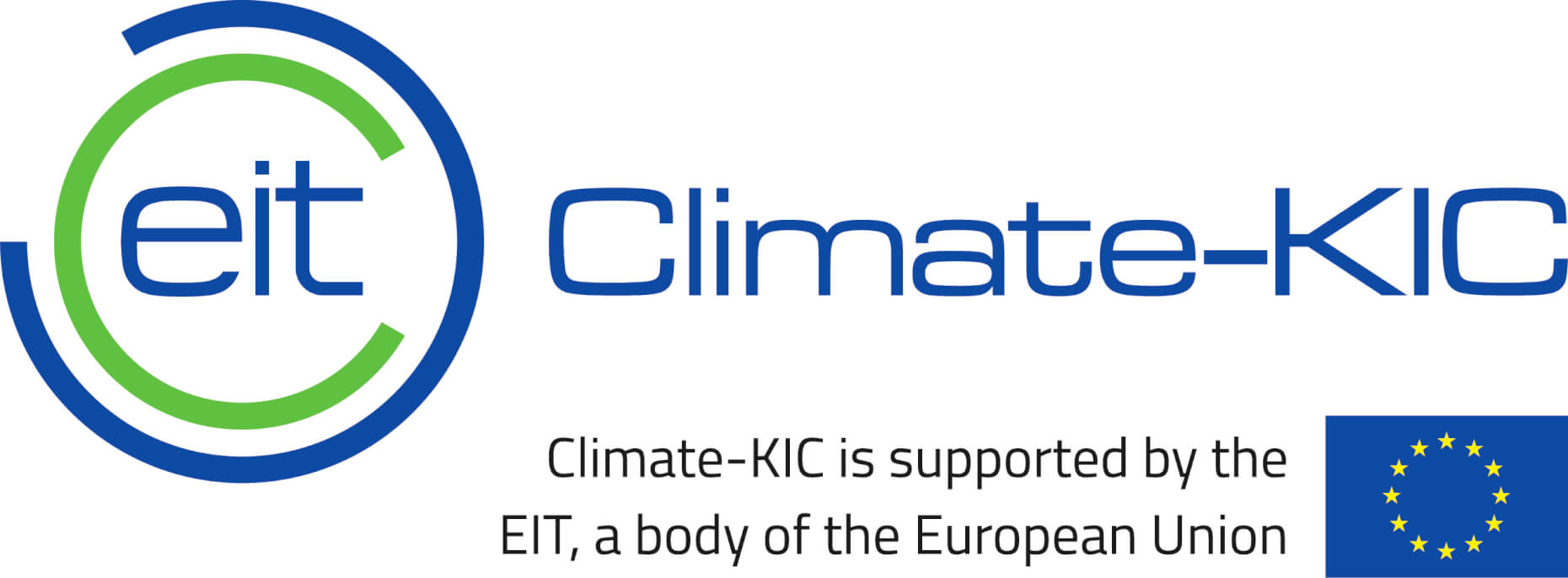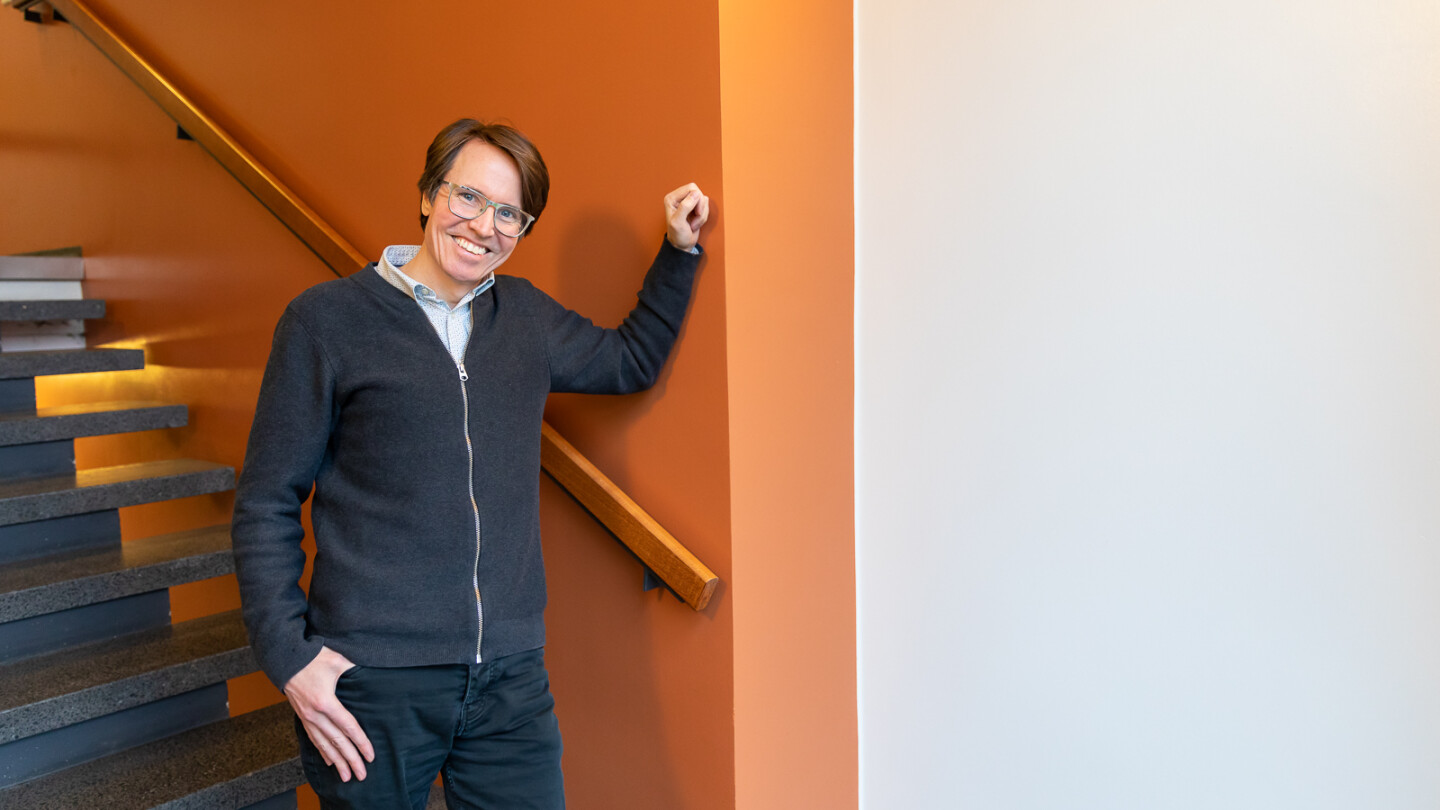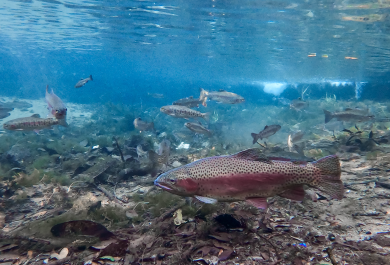Could we find new pathways for change, if we were able to see the world through many futures? Futures Researcher Nicolas Balcom Raleigh challenges people and organisations to contemplate their stance on the future as well as to expand their uses of the future.
Balcom Raleigh is the consortium leader of Futures Literacy across the Deep initiative (FLxDeep) which is funded by EIT Climate-KIC, a Knowledge and Innovation Community of the European Institute of Innovation and Technology’s (EIT). The aim of the FLxDeep initiative is to help sustainability innovators utilise futures literacy.
Futures literacy is a concept developed by UNESCO. The FLxDeep initiative emerged on the basis of this concept in 2019. Futures literacy is the skill of expanding the variety of approaches and purposes for picturing the future. FLxDeep introduces this capability to innovators to help them in the fight against the climate crisis. The initiative generates knowledge about what happens when organisations begin to develop and apply futures literacy in their daily work.
– Awareness of how our ideas about the future shape innovation processes and the capability to see the world through many futures helps us see new pathways for change. It is our hypothesis, summarises Balcom Raleigh.
Developing New Capabilities to Enable Transformation
Futures literacy can help people find agency even though they can never know what the future holds. The focus remains on present day actions. When used for climate innovation, these experiments can drive higher impact sustainable development.
EIT Climate-KIC seeks to support innovative development around themes related to the climate crisis. They now aim for whole system transformation of entire communities and sectors. The newest strategy of Climate-KIC states that we have a climate emergency, and that we must dramatically reduce emissions by 2030. FLxDeep supports this objective by fostering futures literacy for systems innovators.
The assumption of the FLxDeep is that once people are able to picture more than one future for a wider variety of reasons, they can see more possibilities than before. A key tool in the initiative are laboratories designed to introduce futures literacy.
– Futures Literacy laboratories challenge people to picture entirely unexpected and unusual forms of future. Then, they are encouraged to consider how imagining these new and strange futures change what they see in the present, tells Balcom Raleigh.
Beforehand, a lab host committee co-creates the lab’s topic based on what the participants would deem important. This co-created topic makes the lab more relevant to the participants, which supports ‘learning by doing'. Afterwards, the matters that emerged during the session can be discussed and potential actions can be sought. The lab itself is about finding new views of the potentials in the present.
Futures literacy labs have been run all around the world before FLxDeep. What is new about this initiative is that it seeks to develop tools and approaches beyond labs as well. These tools would support innovators to better develop and apply futures literacy in their own work.
FLxDeep pursues this ambition as a consortium of six international partners led by the University of Turku. The team members from across Europe include leading futures literacy experts in lab design, teaching, action research, foresight business, sustainability innovation, and executive-level education.
In 2020, the consortium joined three EIT Climate-KIC multi-partner innovation teams called Deep Demonstrations. The purpose of the programme is to enable whole system transformation to address climate change. The starting point is that the organisations themselves want to make changes.
– The Deep Demonstration teams have remarkable innovation experience in sustainable development. What we bring to the group is an opportunity to gain self-awareness of how they utilise the future and perceive the world through different forms of future.
FLxDeep partners helped the teams, working alongside as team members, to develop their futures literacy while learning more about how futures literacy fit their specific innovation contexts. They also ran a training for Deep Demonstration leaders. The aim of all of these activities is that organisations learn to lead the futures literacy processes themselves.
Continual Interaction and New Processes
The first futures literacy laboratories by FLxDeep were organised in 2019. One took place in Turku. Seeing the potential, the initiative decided to widen its range of activity in 2020.
– We are not just outsiders who provide a workshop. Instead, our purpose is to develop continual interaction and new processes with climate innovators, which will begin to create awareness of what futures literacy is and what it can do, says Balcom Raleigh.
The initiative has also expanded its operations to cover new geographic areas, including some that have not yet been in contact with EIT Climate-KIC. If a region or city has interest in developing futures literacy, the initiative will help in getting started.
For example, in Greece, a futures literacy laboratory was organised by FLxDeep partner FORTH-PRAXI for the coal-dependent area of Kozani. The host of the laboratory told the organising team that it was the first time their community had an open discussion about their region’s future.
– The coal-dependent industry has a long history in these places, and the challenge lies in helping the communities to see new options by discussing the futures they are imagining.
Another key outcome of the FLxDeep initiative is a business model for offering futures literacy development services to paying clients. The model channels the potential of futures literacy to the challenges businesses face in contributing to broader resilience, sustainability, and the well-being of the planet.
The business model development was led by École des Ponts Business School in collaboration with FLxDeep partners. It is ready for a first full cycle client and has been pitched to several prospects. A few have already expressed interest in hiring the team.
Climate-KIC Collaboration Provides Inspiration and Support
FLxDeep and EIT Climate-KIC work in an interactive collaboration, and according to Balcom Raleigh, the initiative would not have existed without EIT Climate-KIC. The funding and opportunity allowed for the partner organizations to dedicate more of their staff time to the advancement of futures literacy.
– In addition to resources and network effects, our initiative gets a lot of inspiration from being part of EIT Climate-KIC and the chance to help people do more to address the climate emergency, states Balcom Raleigh.
The consortium received most of its funding in 2020 from the Long-termism Deep Demonstration, which aims to foster long-term views in finance, business, politics, and wider society. Balcom Raleigh has worked closely with Deep Demonstration since FLxDeep began.
– FLxDeep would not be as bold, far-reaching, or finely tuned if I had only worked alone or with my existing networks. The long-termism leadership team and other partners sparked so many new ideas and kept our ambitions high. Anything seems possible when working with such an interesting mix of people, concludes Raleigh.
FLxDeep intends to continue in 2021 as part of the same Deep Demonstration teams it engaged in 2020. It is already exploring options for advancing futures literacy through other key EIT Climate-KIC programs.
> Futures Literacy across the Deep initiative (FLxDeep) website






